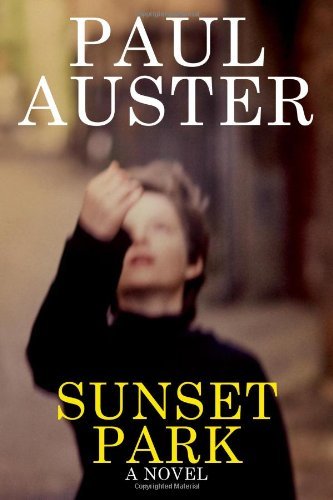
Moon Palace
Book Description
Beneath the gleaming skyline of New York City, a young man's desperate search for identity collides with a haunting family legacy. An ambitious quest for belonging spirals into a labyrinth of love, loss, and the profound connections that bind us to our past. As characters intertwine in a vivid tapestry of dreams and despair, the weight of loneliness becomes palpable. Shadows of mystery lurk around each corner, and every choice reverberates with life-altering consequences. Can one find hope amid chaos, or are we all doomed to repeat the mistakes of those who came before?
Quick Book Summary
Moon Palace by Paul Auster is a remarkable coming-of-age novel that traces the journey of Marco Stanley Fogg, a young man adrift in New York City after the death of his uncle. Alone and struggling to find purpose, Marco's search for meaning leads him on a sprawling quest through love, homelessness, and a tangle of family secrets. His encounters with characters such as Kitty Wu and Thomas Effing reveal deep wounds and buried stories, offering glimpses of hope and despair in equal measure. As Marco pieces together the haunting legacy of his father and grandfather, he confronts timeless questions about fate, loneliness, and the longing for belonging, all set against the vast, unpredictable landscape of America. Auster’s lyrical style and deft storytelling illuminate how our lives are shaped by mysterious links to the past.
Summary of Key Ideas
Table of Contents
The Search for Identity and Belonging
Marco Stanley Fogg’s story begins with loss: orphaned and drifting through life, Marco’s one anchor is his Uncle Victor. After his uncle’s death, he is left isolated, facing poverty and homelessness in New York City. This period of deprivation is both literal and existential, as Marco grapples with survival and the daunting task of defining himself in the absence of familial ties. Through his struggles, he begins to confront the broader questions of what it means to belong and how one forges an identity in the chaos of modern life.
The Cycle of Family Legacy and Secrets
A pivotal turn occurs when Marco develops relationships with Kitty Wu, a sensitive and enigmatic young woman, and with Thomas Effing, a mysterious, wheelchair-bound recluse who hires Marco as his assistant. Effing’s request to write his obituary becomes a transformative journey, revealing an extraordinary life rich in adventure, regret, and estrangement. As the men share stories, Effing’s tangled history illuminates the ways in which hidden family legacies can shape and haunt subsequent generations.
Isolation and Human Connection
Through the disclosure of Effing’s true identity as Julian Barber—Marco’s grandfather—the narrative becomes a tapestry of interconnected fates and revelations. The multi-generational saga investigates how family secrets, inadvertent choices, and traumas are passed down, often unconsciously shaping the lives of descendants. Marco’s efforts to reconcile with the past mirror a universal yearning to break free from inherited cycles and recognize the profound connections that structure our existence.
Chance, Fate, and the Patterns of Life
The novel vividly portrays the agonizing loneliness and yearning for connection that define Marco’s journey. His relationship with Kitty Wu, marked by passion but fraught with tragedy, and the brief but intense friendships he forms on the fringes of society, underline the fragility of human bonds. Throughout, Auster explores themes of alienation—both self-imposed and circumstantial—while juxtaposing them with moments of genuine empathy and understanding that offer glimpses of redemption.
The Impact of Love and Loss
Randomness and synchronicity play pivotal roles, as Marco’s life is shaped by a series of extraordinary coincidences. From his encounters with estranged family to the fortuitous friendships and devastating losses he experiences, Auster questions the boundary between fate and free will. Through these patterns, the novel suggests that amidst chaos and uncertainty, hope and meaning arise unexpectedly, driven by the choices we make and the ties that bind us to others and to the past.
Download This Summary
Get a free PDF of this summary instantly — no email required.





